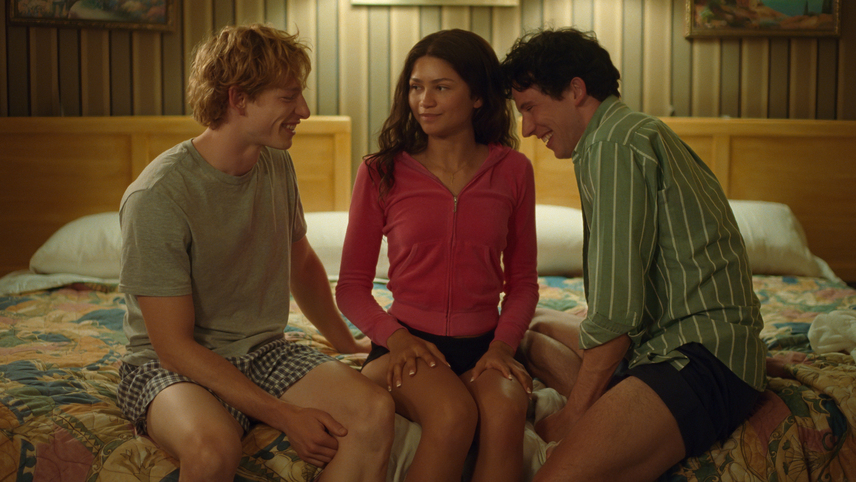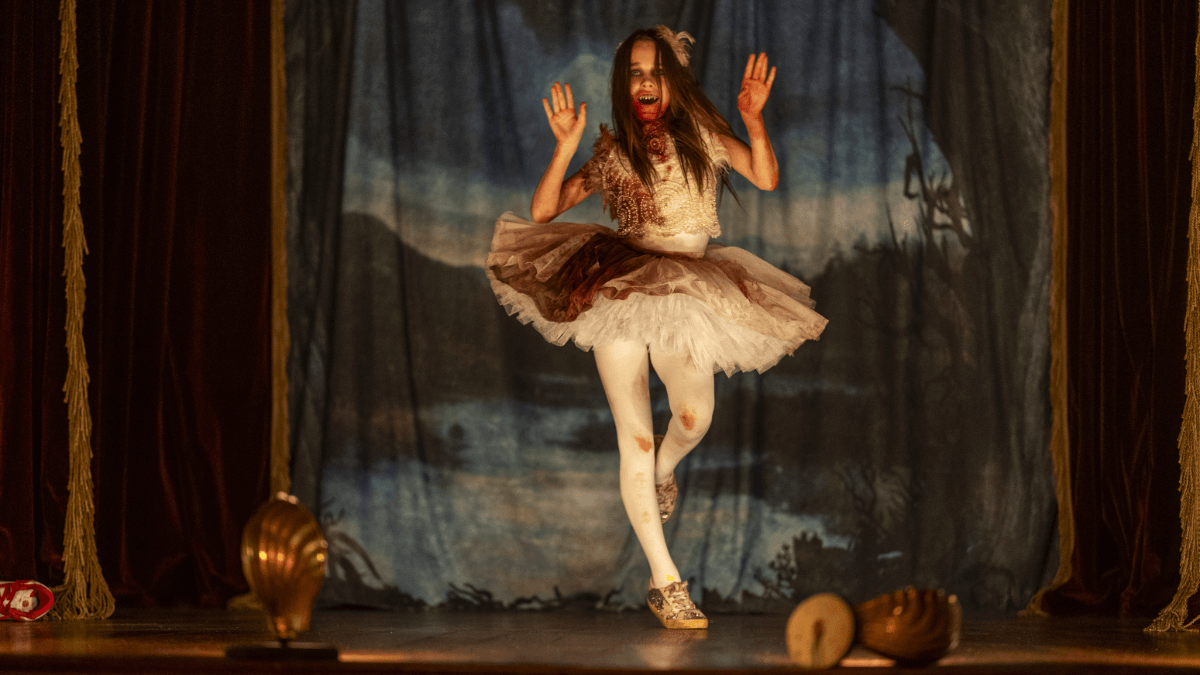![]()
David Leitch has had one of the more notable career trajectories of the past decade. A former stuntman known for his work on everything from The Matrix films, to 300, The Bourne Ultimatum and later serving as the second-unit director for Captain America: Civil War, Ninja Assassin and The Wolverine, amongst many others. Leitch finally broke through as a director, co-directing John Wick, alongside frequent collaborator Chad Stahelski. Utilizing their skills as stunt gurus — Leitch served as Brad Pitt’s stunt double on five different films — the Keanu Reeves-starring action film went on to influence Hollywood’s new style of action films, heavily relying on long, clear takes of action, moving away from the quick cut/ shaky cam style popularized by the Bourne franchise. Leitch quickly moved on from John Wick, helming the slick, but empty Atomic Blonde and bigger studio fare with Deadpool 2 and Hobbs and Shaw. With decades of goodwill and several recent big hits, Leitch is back, adapting a Japanese novel by author Kotaro Isaka, and he’s reunited with Pitt, only this time on the other end of the camera. While Bullet Train is an ideal film to further cement Brad Pitt as one of cinema’s great leading stars, it also finds Leitch helming his most unwieldy and overstuffed film yet.

Ladybug (Brad Pitt) is an assassin who operates primarily in snatch-and-grab jobs. Embracing a more Zen way of living, focusing on controlling his anger and doing his best to avoid conflict, the assassin is on a new job, one that’s seemingly too easy. Onboard a Japanese bullet train, Ladybug is instructed to intercept a mysterious briefcase that is of great importance to his employer. What seems easy enough quickly goes awry as Ladybug collides with fellow assassin team Lemon (Brian Tyree Henry) and Tangerine (Aaron Taylor-Johnson), The Wolf (global superstar Bad Bunny) and the seemingly innocuous, but highly devious and sadistic The Prince (Joey King).
A vast majority of the fun that comes from Bullet Train is watching its all-star cast having the time of their lives, getting big, scenery-chewing roles. Brad Pitt is just as charismatic as the now-Oscar winner has ever been. The character’s “I don’t even want to be here” attitude is well-utilized to fit Pitt’s more laidback, stoner dad persona he’s acquired over the past several years, while highlighting the action star we’ve known him to be. Part of the excitement in the film’s action sequences is seeing just how well Pitt’s physicality has aged, adapting a Jackie Chan-influenced style of slapstick fight choreography. It’s just as entertaining to see Pitt having a ball as it is his surrounding ensemble. Aaron Taylor-Johnson has never been more compelling as he is here, in a role that feels tailor-made to catapult him back into leading man status. Brian Tyree Henry is reliably excellent, getting to flex his comedic film chops, as well as getting involved in the films many stunts. A notable highlight is an intimate hand-to-hand fight scene between Henry and Pitt in the train’s “quiet car” section, trying to beat the hell out of each other while trying not to make any noise. Joey King, in particular, revels in the opportunity to play the most evil character you’ve seen onscreen in some time. King’s assassin character, who uses her girlish looks to her advantage, is perhaps the juiciest role of the film and it’s one that gives King — an immensely likable presence who is too often relegated to dopey teen romance flicks — a proper platform to display more of her many talents. A number of late-in-the-game cameos come and go with varying results, but does build to a highly satisfying final baddie reveal.

David Leitch retains his slick visual sensibilities with much of Bullet Train having a particularly vibrant look to it. Shot by cinematographer Jonathan Sela (The Lost City), the candy-coated aesthetic that borrows as much from Hong Kong action cinema as it does anime is a relief given the muted, drab color palette of many recent blockbusters. The director brings a palpable sense of energy behind the camera that, while overbearing and irritable at times, does allow the action sequences to have more pop and flair to them. Leitch and longtime editor Elisabet Ronaldsdottir have a fine synchronicity between them that flourishes in the films set pieces, despite the film’s haphazard pacing. It’s only the film’s climactic action sequence where digital artifice begins to notably take over.
The tone feels ripped right out of the early 2000s when Tarantino and Guy Ritchie films were the genre’s biggest influences. While films like Crank and Shoot ‘Em Up more than work on their own merit, Bullet Train often feels like a lesser version of those films. The mix of pulpy violence and cartoonish humor isn’t always a detriment, the film is often quite funny, but the script is far overwritten and stuffed with seemingly endless detours and intersecting plot threads that not only make the 127 minute runtime feel longer than it actually is, but it tends to suck all the life out of the narrative. This is the kind of film that likes to run circles around itself only to remind you 20 minutes later that the story hasn’t progressed in any meaningful capacity. You’ll be hard-pressed to find a single character here that has the depth to warrant a story digression over 90 minutes into the film. This cast is giving their everything into making these characters feel unique and memorable, and they largely succeed when the film isn’t standing in its own way.

Bullet Train does have a sizable amount of pleasures, thanks in large part to its dedicated all-star cast and slick visual style from director David Leitch. However, this is an overstuffed, overlong and bumpy ride that needlessly complicates itself in an effort to appear sophisticated or unique. The final product feels like the first draft of a story before any notes were given.








Not sure if I will see this, and am aware the reviews have been poor, but you have written a masterly and riveting essay. Kudos.
I’m planning on seeing it tomorrow. Been looking forward to it since it was announced. This is basically what I expected but it looks like a load of fun.
I’ll definitely be seeing it. Love it when a movie isn’t a sequel or a reboot.
You had me at “Tarantino and Guy Ritchie films”
It does sound like a ’90s throwback with that hypertextual jazz they were so keen on. Thanks for pointing out the background of the director, which is key to the style–I really hated the Bourne edited up fights you couldn’t see, and was especially depressed when they emulated that style in Quantum of Solace. Keep up the good work!
Great review .sounds like a movie I would like to see but being on a budget it won’t happen .
Only 2.5 stars? I guess that’s not terrible. I’m still planning on seeing it because of the cast. I’ve purposely avoided reviews and trailers because I don’t want to know too much going in. I’m excited to see it still
There’s a great movie inside Bullet Train but it relies way too much on the star power of its lead and its third act is as bombastic or predictable as they come.
I’m a huge Brad Pit fan but didn’t plan on seeing this anytime soon. That is until I read this review. I’m very interested in stuntman turned director. Once again, great thoughtful review
Was pleasantly surprised watching the fast paced uber dark mystery comedy “Bullet Train.” It is a Tarantino-esque, action packed, ambitious film with choreographed fight scenes and poisonous snake venom. The setting is a neon drenched Japan, and offers the viewer an eerie feeling of culture shock between East and West. Super violent and over the top gory at times, it felt like watching a video game mash up with “Murder On The Orient Express. ” Brad Pitt’s acting and comedic timing was exceptional, and Bad Bunny did an excellent job as well. I would recommend this film to anyone that would like to watch a low brow, extra dark comedy loaded with gratuitous violence that has the possibility of finding a cult status. 3 stars ***
i appreciate the fact of the information that was given